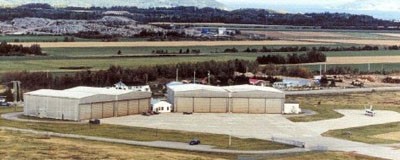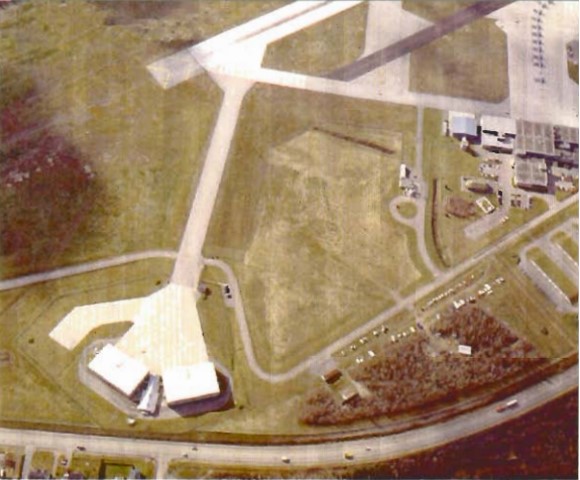
For the week of December 16, 2024.
On December 22, 2005, the Government of Canada designated the Alert Hangar at Canadian Forces Base (CFB) Bagotville in La Baie, Quebec, a recognized federal heritage building. Two years later, it became a national historic site. The Alert Hangar is a well-preserved Canadian design standard for a quick response hangar which played a key role in the North American Air Defence Command (NORAD) during the Cold War.
Officially established in 1958, NORAD brought Canadian and American air defence under joint command. At the time, it seemed increasingly possible that Cold War tensions with the Soviet Union could escalate into nuclear war. Networks of air-defence radar stations, like the Distant Early Warning Line (1954) and Mid-Canada Line (1957), acted like a trip wire to warn of incoming Soviet jets, bombers, and missiles. Canadian and American interceptor aircraft on alert status to NORAD would intervene if an attack from Soviet nuclear-armed bombers was detected.
The Alert Hangar was constructed in 1958 at the pre-existing CFB Bagotville, north of Québec City on the traditional lands of the Innu. It was the first Canadian design for a quick response all-weather jet hangar. Housing one of five Air Defence Squadrons across Canada, it played a key strategic role in the air defence of North America during the Cold War. The Alert Hangar complex consisted of four large steel hangars grouped two-by-two on both sides of a smaller Domestic Centre. The complex was located near the end of the airstrip to ensure easy runway access via heavy doors, which could be opened quickly. All hangars were connected to the central living quarters and headquarters by long covered passages. This made sure pilots were always close to the aircraft, so that they could deploy without delay.
The Alert Hangar at CFB Bagotville housed Canada’s best all-weather fighter jet, the Avro CF-100 Canuck, from 1958 to 1961. While not the fastest jet available, it was reliable in harsh winter weather. In the years that followed, the Alert Hangar boasted some of the best jets in the Canadian fleet, including McDonnell CF-101 Voodoos in 1961 and 1962, CF-5/CF-116 Freedom Fighters in 1969, and CF-18 Hornets in 1985. Today, the Alert Hangar remains an integral part of NORAD and serves as an important reminder of the constant state of alert during the Cold War.
